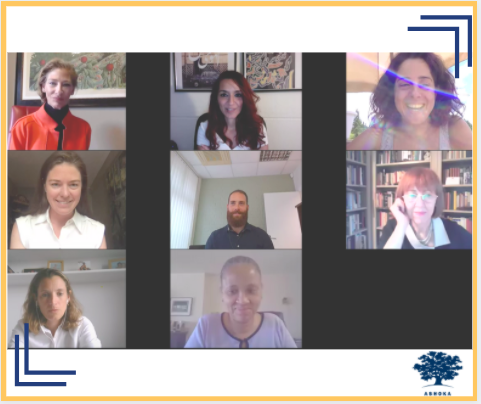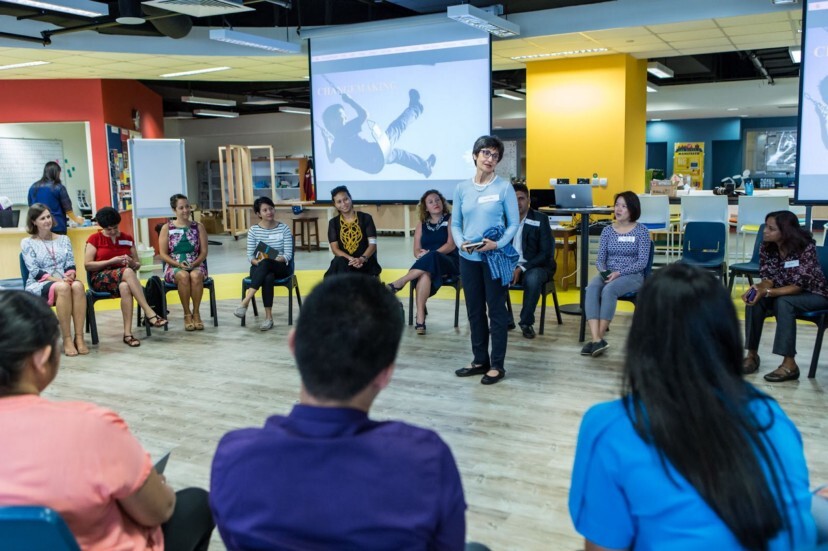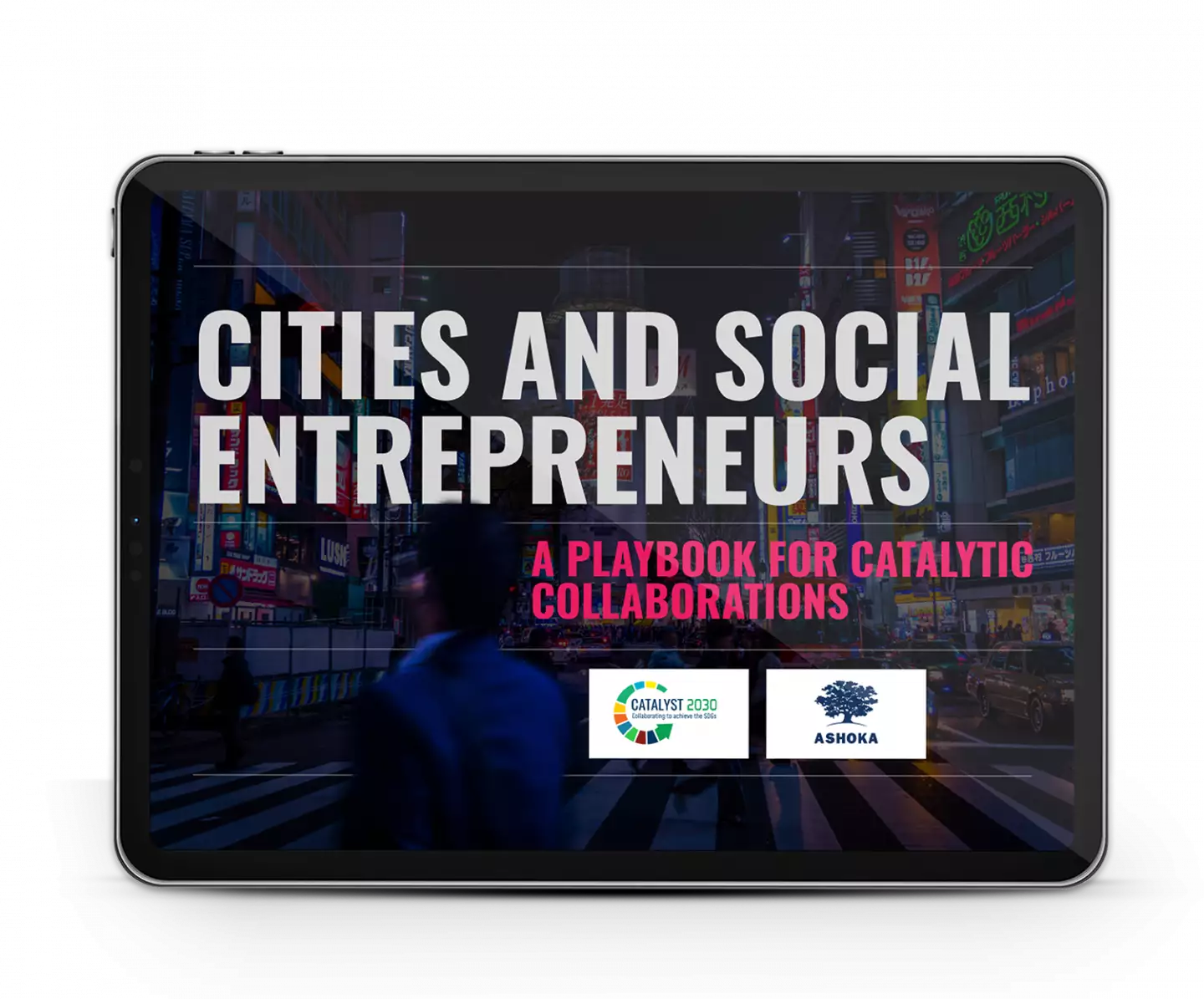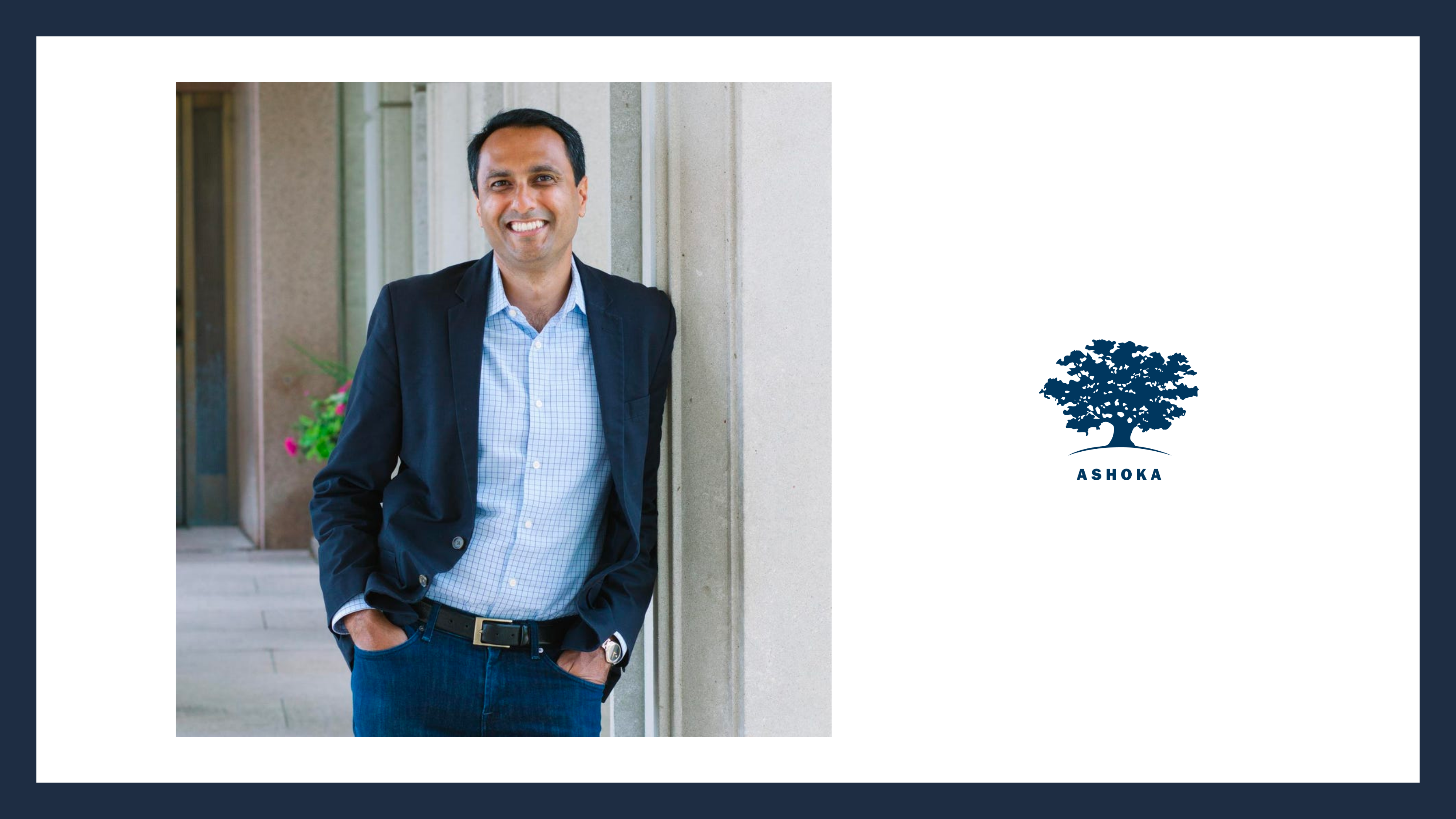
Female social entrepreneurs are more likely to change social and cultural norms through their work than their male counterparts, according to Ashoka’s 2018 Global Impact Study. Yet the mainstream idea of what makes a social initiative “successful” excludes the model used by many female entrepreneurs.
As we’ve noted before, success in the social sector is usually seen as “scaling out” — as described by Iman Bibars, regional director of Ashoka Arab World. This male-dominated “franchise model” often results in big budgets and large numbers of beneficiaries. But many women take a different, incredibly successful approach: “scaling deep.”
“When women adopt a cause, they go and spread the know-how. They collaborate with other organizations, so they don’t franchise, and that’s why sometimes their impact is not registered,” explains Iman.
“Most of the time, when women adopt and take on a challenge and care about a cause, it’s about changing perceptions, behavior, the way people think, and mindsets.”
The global pandemic offers an opportunity to reevaluate the definition of success that’s guided the social innovation ecosystem until now. “Companies that are scaling deep are just outperforming the ones who are those old structures,” Natalie Rekstad, CEO of Black Fox Philanthropy, said at the WISE Up Series, an online event hosted by Ashoka Arab World.
Ashoka’s Women’s Initiative for Social Entrepreneurship (WISE) is helping to expand our idea of success, highlighting the women who are changing policies and shifting norms. The recent WISE Up series brought more visibility to these female entrepreneurs and the power of their work. Over 860 people from 25+ countries, including female entrepreneurs and women across media, philanthropy, higher education, and the corporate sector, came together to talk about how women lead social movements and how to expand the mainstream idea of “success.” Here’s what we learned:
How women innovators lead social movements
Collaborating with communities
Co-creating with communities is essential to changing mindsets and behavior patterns. Molly Melching, founder of Tostan, pioneered a model she calls “organized diffusion,” which equips local communities with knowledge to spread to friends, family, and neighbors. Tostan’s work has led to thousands of women holding leadership posts and over 8,800 communities in eight African countries publicly declaring their commitment to abandon female genital cutting.
“The scaling is done from within, through the people themselves,” Molly explains.
A vision that invites people in
Scaling deep models are also often accessible and open-source. Community buy-in is the key for Sue Riddlestone, Ashoka Fellow from the UK and cofounder of Bioregional, which brings solutions to help individuals, institutions, and governments truly embrace sustainability and reduce their carbon footprint.
“We co-create, we collaborate, and it’s kept very simple. Our … principles are health, happiness, community, and nature — things everyone can understand,” she says.
Proximity matters
Fostering deep impact means advancing leaders who are deeply connected to the communities they are working in and the problems they are attempting to solve.
“There is something about systems-impacted folks who have a particular frame and lens,” Cheryl Dorsey, CEO of Echoing Green notes. Because these innovators have been impacted by the problems they seek to solve, they understand the intricacies of the challenges their communities face and are more likely to bring both passion and perspective to their work.
The steps to re-define success
How to shift the social sector
While women innovators are vastly underrepresented, there’s hope that shifting towards recognizing and supporting scaling deep work can change this. Here’s how leading women entrepreneurs believe we can make it happen:
1. Decrease Restrictions
Offering women innovators unrestricted funding over longer periods of time would give entrepreneurs more flexibility in implementing their programming intuitively. It would also allow them to foster stronger community buy-in as well as give them more time to pursue important policy changes.
2. Trustful Partnerships
Many speakers thought that decreasing funding restrictions necessitates more trustful partnerships, something Abdulrahman Alhalawani, the youth learning, entrepreneurship & innovation programme manager at the Asfari Foundation, emphasizes:
“We truly look at our relationships with our partners as partnerships; we want to challenge the narrative of a donor-grantee relationship and focusing only on reporting and only on delivery.”
3. New Measurements
Creating metrics that better reflect scaling deep — capturing how mindsets and norms are changing — will be critical to advancing scaling deep impact. “We need to make sure we build proper measurement systems that will allow these donors to understand the value,” says Miren Bengoa, executive director of the Chanel Foundation. In many cases, this means looking beyond the numbers and paying attention to qualitative data.
4. Shift Dialogues
One way to reformulate success is through the media. “[The media] makes us think about what we should be caring about and what we should be reading about — it sets the agenda, and then it normalizes as well,” reflects Rana Askoul, CEO of the Womanity Foundation.
Working more often in gender spaces and being exposed to the work of women innovators on the ground is also critical, as Miren pointed out. “[We need] to listen to groundbreaking work done at grassroots level, listen to the leaders in communities, to bring out the best practices that stem from all of these different contexts, and to try to bridge the good practices between continents,” she explains.
A collective effort
To truly embrace scaling deep within the social sector, we need everyone to come on board and collaborate. Most importantly, we need a mindset shift among leaders.
As Elizabeth White, country director of British Council Egypt puts it, “deep as a metaphor implies roots and wisdom and time. We dig deep to find the truth … beliefs are deep-rooted; she is a deep character … deep is what lasts. And we all want to have the chance and the reach and the time to make a lasting difference. And this, I hope, is a metaphor that we will live by.”
-
Interested in a deeper look at the conversations? View the opening session and the closing session of WISE Up.




